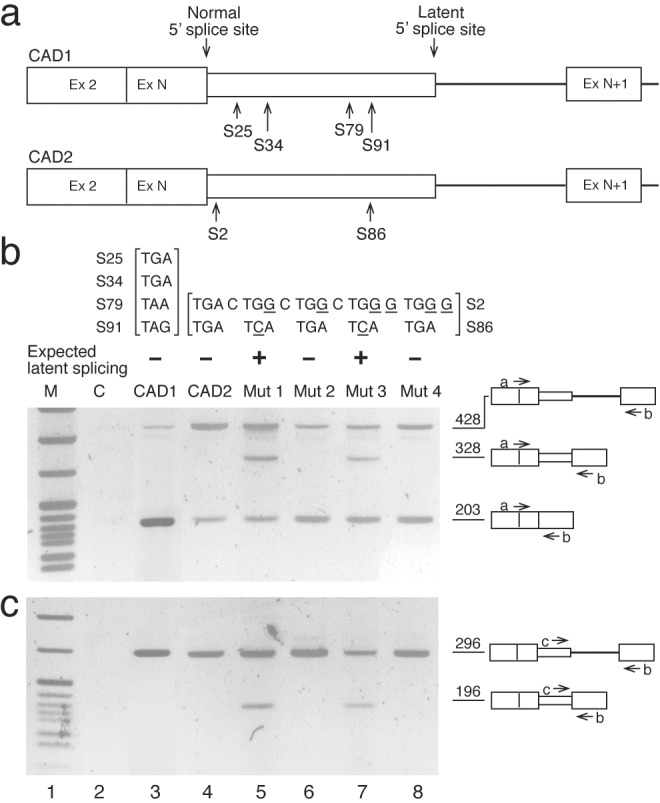Figure 1.

An intronic latent 5′ SS is activated in CAD mutant mini-genes devoid of upstream stop codons—RT-PCR analysis. (a) Schematic drawings of wild-type CAD mini-genes (open boxes, exons; heavy line, intron; narrow box, intronic sequence included as part of the exon in the latent RNA). The normal and latent 5′ SSs and the in-frame stop codons between them are indicated (S# designates the T nucleotide in a stop codon and its respective distance from the normal 5′ SS). (b and c) Gel electrophoretic analysis of RT-PCR DNA fragments obtained from CAD mini-genes. Sequences of stop codons and their mutations (underlined nucleotides) in each construct are indicated above each of the respective lanes. Also indicated (−/+) is the expected occurrence of latent splicing. Bands corresponding to precursor and mature (normal and latent) CAD fragments amplified with primers a+b (b) and primers c+b (c) are indicated by schematic drawings on the right. These assignments were confirmed by sequence analyses of the DNA fragments extracted from the gel. An additional minor band, which is assigned to a heteroduplex between precursor and mature PCR-amplified DNAs, occasionally appeared just below the 428-nt band in Figs. 1b, 2a, 3a, and 4a, as confirmed by sequence analyses of the DNA extracted from the gel, and by rerunning it on a second gel. Lane 2, control with untransfected cells. Lane 1, size markers, pBR322 cut with MspI.
